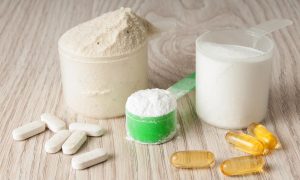The Effects Of Caffeine And Running

|
|
For most people it seems, running is a sport/discipline, that has very, very mixed results with opinions split right down the middle in terms of popularity. Some people absolutely love running and can literally run for hours upon hours at a time, whilst barely breaking a sweat. Others however, seem to dislike running with a passion, and if given the choice, would avoid it like the plague. Their reasons for disliking the sport are largely down to the fact that they find it tough to do, plus they may simply struggle to get motivated and may find it boring if truth be told. Running is an incredibly gruelling and physically demanding sport, and although the benefits associated with running are very well known, the fact remains that it is a tough sport to crack. Even the most seasoned and experienced runners in the world go through spells where they struggle to find the energy and to get motivated, which is where supplementation can prove so extremely useful. Caffeine, for example, is one of the most popular running supplements in the entire world, and it is renowned for helping to bring out the absolute best in people of all ages and abilities. But just what are the beneficial effects of caffeine on running? Well, let’s take a more in-depth look, shall we?
What is caffeine?

We’ve probably heard people talking about caffeine when drinking cups of tea or coffee, and how perhaps it keeps them up at night, and although many of us understand that it can give us energy and can keep us up if consumed too late, many people may not be aware of just how complex this compound really is. Caffeine is an alkaloid compound – specifically, it is a white crystalline xanthine alkaloid, that is found naturally in a number of plants, especially tea and coffee plants/trees. In these plants and trees however, it is used primarily as a self defence mechanism, to help them protect themselves from being eaten by bugs and insects. The trees and plants use caffeine as a natural pesticide, so if any hungry little bug critters do try munching on the leaves, they unfortunately lose their lives, but the tea plants/trees continue to grow their delicious leaves. Now, you may be pretty apprehensive about consuming a pesticide, and ordinarily you would be well within your rights to do so, but don’t worry, in humans, providing caffeine is consumed in safe dosages, it is perfectly safe, and is actually very beneficial. Not only is it naturally found in beverages such as tea and coffee, but on top of that, when purified, caffeine is used in prescription medications and home remedies, to combat fatigue, pain, and a series of other ailments. In terms of physical performance however, caffeine really comes into its own.
Caffeine and running benefits
As mentioned, running is an incredibly tough discipline, especially if you are lacking energy and/or motivation. For times when you are struggling, or for times when you need a bit of a pick me up, caffeine supplementation, providing you stick with the correct dosages of course, could be exactly what you need. Here’s a look at a few of the effects of caffeine on your running performance:
Glycogen sparing – One of the main reasons why caffeine is considered to be so beneficial, is the fact that it is glycogen sparing, due to the fact that it increases free fatty acid circulations. This is very important because the fatty acids found naturally within your system, can actually be used up as a primary source of energy by the body, as opposed to glycogen, which is the main source of fuel used by the muscles. The quicker our glycogen stores are used up, the quicker we fatigue and run out of energy. By utilizing the fatty acids found in our bodies however, we have a secondary source of fuel to power our bodies and get it through the workout, meaning that the glycogen stores found in our muscles will last longer, allowing us to exercise for longer amounts of time. For endurance events especially, this is a huge benefit.

Caffeine promotes mental alertness – Due to the fact that many of us simply do not have the time during the week to go for a several mile run each night after completing a full day at work, our only other options are to either exercise and push ourselves when we’re feeling tired and exhausted, or to simply exercise early in the morning. Either way however, will result in us needing an extreme pick me up and an increase in energy, which is where caffeine comes into the mix. Caffeine not only has stimulating effects on the body, it also has stimulating effects on the brain, meaning that it can promote mental alertness and an enhanced frame of mind mentally. This is great because, rather than struggling to find the mental energy to force yourself to go running whilst tired, after a quick dose of caffeine, you’ll feel revitalized and refreshed, both physically and mentally. Put simply, caffeine will keep your mind sharp, and it will help you to get into the “zone” as runners call it, so that, rather than simply going through the motions and letting your mind wander, you will instead be focussed and alert, and ready to attack your workout with the force of a hundred men.
Caffeine enhances fat burning – Different people may take up running for different reasons, as there are some people out there who run to simply burn fat and get fitter, whilst others run because they enjoy how it makes them feel, and just how healthy it makes them in general. Whether you are running to lose weight or not, by supplementing with caffeine, you can really turn your body into a fat burning machine whilst running. As mentioned before, running preserves glycogen stores, which is because it utilizes fat as a primary energy source instead. This means that by running, you are actually fuelling your body with stored body fat, so the more you run, the more fat you will obliterate from your body. If you’re looking to lose weight and get fitter and healthier, caffeine is the perfect supplement for you.
Caffeine helps promote speed and power – Another running benefit associated with caffeine, is the fact that it has been proven to help promote speed and power. You see, it enhances neuromuscular function and coordination. This basically means that it improves the amount of time required for the brain to signal to your muscles when they need to contract, and when they are required to relax. For short distance runners, this is hugely beneficial, but there are studies that appear to point to the fact that it can also benefit long-distance runners as well.

Caffeine helps to generate more energy in general – Nowadays, pre-workout supplements are incredibly popular amongst athletes involved in all types of disciplines, and for very good reasons too. You see, their primary ingredient is usually caffeine, due to the fact that caffeine provides a very substantial boost of energy when consumed. Studies have found that, when consumed, athletes can exercise up to 23% more efficiently than usual, particularly in hotter temperatures. This means that you can generate more energy and you can work harder than usual, which is incredibly important for runners, as the more energy you have, the more distance you will be able to cover, and the better your times will be.
Improved recovery rates – In terms of running performance however, caffeine is not simply just beneficial for the discipline of running itself, as it has also been found to assist with recovery following a run. Running takes a real physical toll on your body, as it recruits multiple muscle groups as well as both the aerobic, and anaerobic systems. As you might expect, as running is so gruelling and physically demanding, your body takes quite a beating, and it has to work very hard to recover when you’re done. Studies however, have found that, when used in conjunction with a recovery carbohydrate supplement such as waxy maize starch for example, it can enhance post-exercise recovery rates very substantially. This means that caffeine can help your muscles to recovery quicker, plus it can help you to reduce the amount of aches and pains you experience when you have completed your run.
Things to be wary of
Caffeine however, is not a supplement to be abused or taken for granted, and you must never ever exceed the recommended daily dosage. If you suffer from any underlying cardiovascular issues, such as heart disease, or if you’ve suffered from a heart attack before, you should always seek medical advice before you consider using caffeine. What’s more, as it has such powerful stimulating effects, you should never consume it late at night, or even in the evening, as it can cause insomnia. What’s more, it is addictive, so be wary of consuming too much. If used as instructed however, providing you have no underlying health issues, caffeine will make your running experiences far more fruitful than you could have ever imagine.














